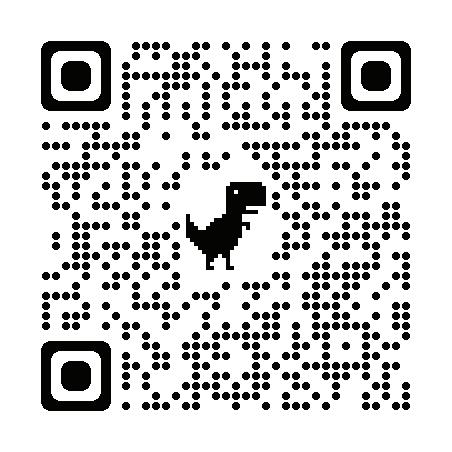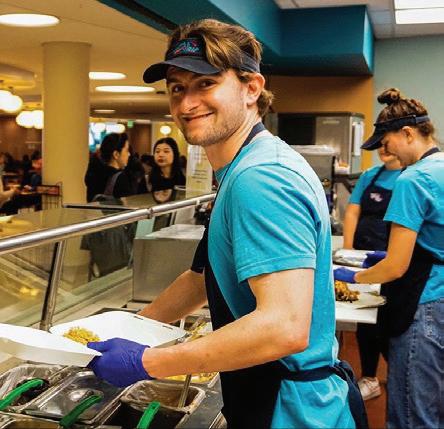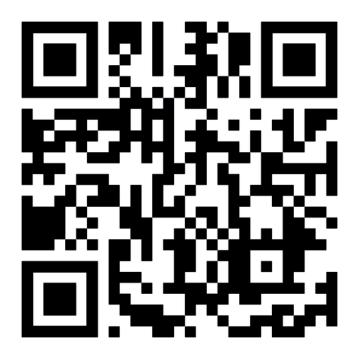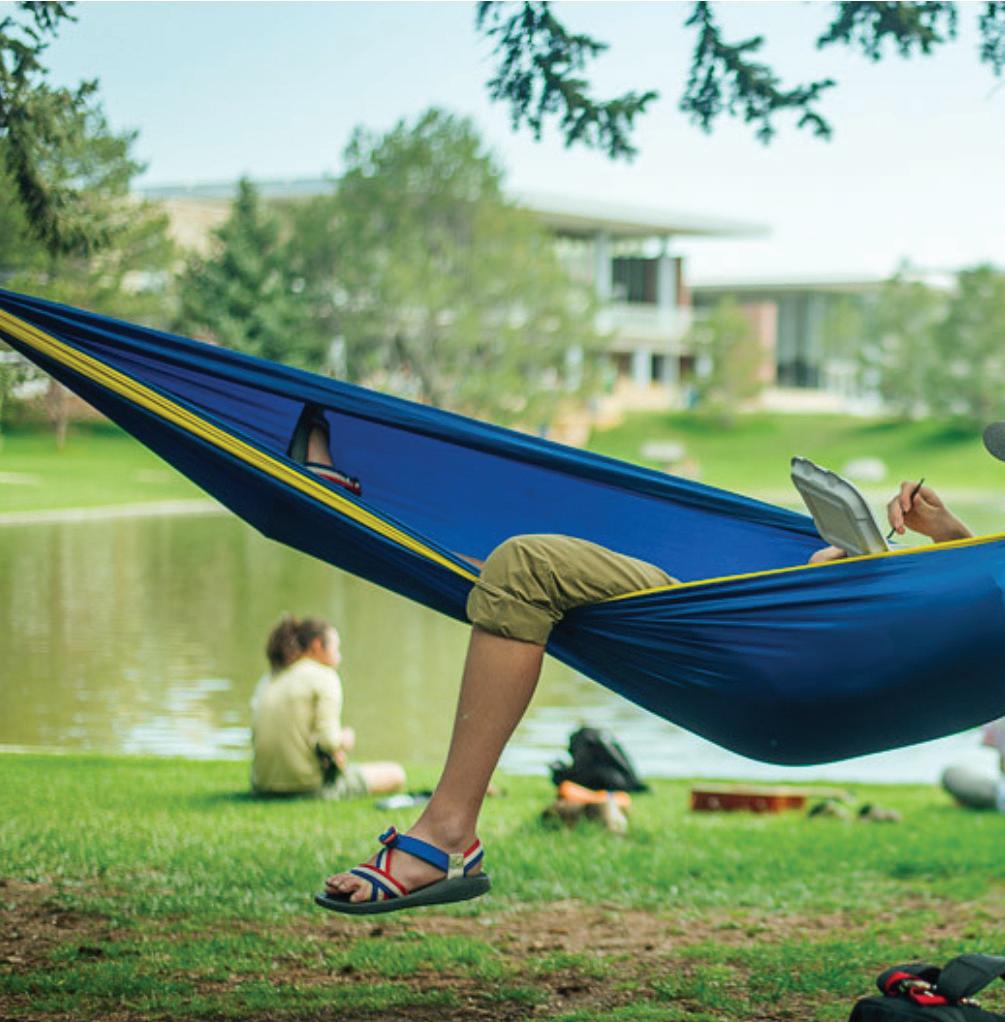Supporting Transitions


WITH SUPPORT FROM





















Engaging with Parent & Family Programs
Parent and Family Programs is the “main hub” where anybody that a student identifies as “family” or a “supporter” can contact to ask questions, get help with a problem their student is facing, or get coaching on how to have different kinds of conversations with their student.
How students define “family” is important to us, because family can include direct family members, distant family members, family friends, aunts, uncles, friend groups, grandparents, trusted religious figures, neighbors, and so many more. We believe that all forms of family are welcome at CSU, and we invite you to partner with us. Please call or email us.
970-491-6680 | parentfamilyprograms@colostate.edu
Colette Sterling, M.S.
She/Her/Hers
Assistant Director, Parent and Family Programs
Dr. Kerry Nakasone Wenzler
She/Her/Hers
Executive Director, Orientation, Transition, and Family Programs

Visit our website





“Supporter: A person who is actively interested in, wishes success for, and encourages someone (a student), regardless of their relation to that person.”





Principles of Community
During Ram Orientation, the team in Parent and Family Programs introduces new parents/families/supporters to CSU’s Principles of Community (inclusion, respect, integrity, service, and social justice) because these principles shape how students engage with one another as part of the CSU community.
This also applies to how our office works with you as a student’s family member/supporter to ensure we are all collaborating to make CSU’s community welcome, inclusive, and just.
INCLUSION
We create and nurture inclusive environments and welcome, value and affirm all members of our community, including their various identities, skills, ideas, talents and contributions.
INTEGRITY
We are accountable for our actions and will act ethically and honestly in all our interactions.
SERVICE
We are responsible, individually and collectively, to give of our time, talents, and resources to promote the well-being of each other and the development of our local, regional, and global communities.
SOCIAL JUSTICE
We have the right to be treated and the responsibility to treat others with fairness and equity, the duty to challenge prejudice, and to uphold the laws, policies and procedures that promote justice in all respects.
RESPECT
We honor the inherent dignity of all people within an environment where we are committed to freedom of expression, critical discourse, and the advancement of knowledge.







SMART STARTS HERE


















Get added to your students RamCash account for online deposits. Add funds anytime, ensuring they always have the resources they need to thrive! In person deposits accepted at the RamCard Office.




CSU Civic Engagement and the

First Amendment
More Information on the First Amendment




CSU has intentionally focused on education about democracy and the role of free speech at a public institution of higher education. This includes classroom discussions, books at the library, major speakers and student-led events.
Universities bring together individuals who represent virtually every background and opinion, all who co-exist on the same campus. We are talking with each other, learning from each other, and challenging each other as well as challenging our own assumptions.
Learning to respectfully talk with and engage with others who have different beliefs, experiences and points of view exercises muscles of democracy and prepares you for leadership in the world.
CSU was founded on the revolutionary idea of democratizing education. As a land-grant, public research university, it is CSU’s role to strengthen and model democracy. Today, CSU has the responsibility to continue to build an inclusive community that engages in civil, thoughtful, and productive dialogue.
The First Amendment is important to democracy.
• The open exchange of ideas is the foundation of democracy – and of a great university.
• Universities are places for discourse, debate and learning from people with different views and experiences.
• What is the First Amendment? It’s 45 words that create the rights of free speech, freedom of the press, right to peaceably assemble, freedom of religion and the right to petition the government for a redress of grievances.
• Our CSU community will come together for dozens of events focused on democracy and civic engagement throughout your time at CSU.
• CSU and its student groups intentionally welcomes speakers and events that represent diverse perspectives and backgrounds for productive dialogue.
• Free speech is central to a healthy democracy and CSU will provide you with more information at Ram Welcome and throughout your academic career at CSU.
• To learn more about the First Amendment at CSU, visit firstamendment.colostate.edu.
• The First Amendment prevents the government, which includes CSU as a public university, from controlling what people say or limiting their expression. Just as the First Amendment generally protects our right to express ourselves, it equally protects the rights of others to express themselves, even if you disagree with their speech or find it offensive, hurtful, or hateful.





Accessing Student Records: Finances and Information:
We know that covering the cost of tuition and other expenses is top of the mind for families every semester, alongside thinking about financial aid. Before your student came to college, chances are that you had access to most information in middle school, high school, primary school, and elementary school. Coming to a college campus, that access becomes restricted due to FERPA.
FERPA 101: The Family Educational Rights and Privacy Act of 1974
FERPA is designed to protect the privacy rights of student educational records and to ensure the accuracy of those records.
FERPA applies to currently enrolled or formerly enrolled students (regardless of age or parental dependency status)
FERPA applies to all institutions that receive Department of Education funds
What this means for you is that you gain access to only specific kinds of information, but your student must allow it by inviting you into what we call FAMweb. For more information, as well as a question and answer section detailing how you can get access, scan the QR code. If you have questions about FAMweb or FERPA, please reach out to Parent and Family Programs as we are more than able to coach you on best practices around your student and their information.





STUDENT EMPLOYMENT
LORY STUDENT CENTER

Why Work At The LSC ?
Building Operations
Business Services
Cultural Resource Centers
Campus Activities
CSU Bookstore
Dining Services
Event Planning
Executive Director’s Office
LSC Governing Board
IT Services Marketing SLiCE
Student Government
...and many more!

1




Apply through Handshake:
2
3 Flexible schedules accommodate classes Connect with others on campus

Work study and non-work study positions available
Develop transferable skills

Make a Handshake account Apply the “On-Campus” filter in the jobs tab
Submit your application for available jobs!

Scan this QR code to learn more about the LSC’s Student Employment
https://lsc.colotate.edu/ lsc-studentemployment/
@csulsc @csulsc







































August 2024
Conversation Check-In
August is an exciting month filled with so many ways first-year, transfer, continuing and international students can get to know one another, get connected, and start the semester positively. As the semester continues, start talking about plans for you and your student to check-in. This could include texting regularly, having one or two phone calls a week, hosting a family Zoom session and more! Take time to talk about what will work for your family and your student.
Many students, both new and continuing, seek academic accommodations for their courses to aid them in being successful in class whether it is with homework, test taking, and/or having a learning aid (and more). Ask your student if they might need to meet with a specialist at the Student Disability Center (SDC) if they have a documented need for accommodations. The SDC’s calendar fills up quickly, so the sooner your student can see someone, the better! 970-491-6385 | sdc_csu@colostate.edu.
Navigating the Transition – Adjustment Periods
For first-year students, this time brings so much energy, and for continuing students, this is a great time to reflect on steps to take towards success (however your student defines that – it looks different for everyone). With all this excitement, nervousness, and energy, there is sometimes an assumption that everything has to happen all at once. For some students this might be true, and for many others it is not! The adjustment period for a student being at CSU varies widely, and Parent and Family Programs is here to help coach you through how to have those conversations!

Fall 2024 Move-In Checklist:
Make sure your student is aware of the Housing and Dining Move-In Checklist, which covers everything you and your student need to prepare for moving into an on-campus residence hall or apartment.

CSU Health Network Checklist

All domestic and international students are required to submit health insurance preferences, health forms and immunizations before the semester begins. All CSU students have access to our wide range of medical, counseling and health education and prevention services, regardless of their insurance plan.


Critical Dates
August 12-14 –Fall Move-In and Ram Welcome for Supporters, Families, and Parents
August 12-17 –Fall Ram Welcome for First-Year, Transfer, and International Students otp.colostate.edu/ ramwelcome/fall-ramwelcome
August 19 –Classes Begin

August 22 –
CSU Day of Giving
August 25 –Last day to add classes without override

Care for Body and Mind



services are available to primary survivors and secondary survivors who serve as support systems for primary survivors:
Crisis intervention
Safety planning
Emotional support and grounding strategies
Information and connection to academic, legal, medical, emergency housing, and student conduct resources
Support in navigating Title IX and criminal legal reporting structures
Connections to trauma informed counseling Survivor centered support groups
Throughout the academic year, our wide range of programming focuses on growing consent culture, healthy relationships, healthy boundaries, self-care practices, body image, and sex positivity
Our peer education group, The Red Whistle Brigade, is available for presentation requests on related issues for student organizations and academic classes.
The Survivor Advocacy and Feminist Education Center, or SAFE Center, offers a range of services and programming for students on campus impacted by interpersonal violence, sexual assault, relationship violence, stalking, and childhood sexual abuse. Advocacy support services Supportive and cozy place with chill vibes to take a break, hang out, and study




September 2024
Conversation Check-In
SAFE – VAT, and Student Conduct




Being at CSU means your student is now a part of a larger Ram Community where Rams Take Care, Rams Take Action. Now is the time to talk to your student about how they are centering mental health, physical health and wellness, and the overall wellness of others around them. CSU has lots of resources students can use to help themselves and other students. For firstyear students, this means talking with their Resident Assistant (RA) in their residence hall, which is who to talk to if they are struggling or notice another student struggling.
One resource students at CSU can take advantage of is the Survivor Advocacy and Feminist Education Center (SAFE). The SAFE provides confidential crisis intervention and emotional support as well as resources for survivors of sexual assault, relationship violence and stalking. Within the SAFE is the Victim Assistance Team (VAT), a 24 hours a day/7 days a week/ 365 days service that provides confidential advocacy service to CSU students in need of support. Victim Assistance Team can be contacted at (970) 492-4242.





Students Navigating New Values
In their first semester, college students often meet different people and face new ideas that might challenge their existing beliefs. This learning and growth continue throughout their time on campus as they gain new skills and experiences. At CSU, students have many opportunities to broaden their perspectives through various events, programs, and courses. If students seem unsure or frustrated about changes in their values or beliefs, it’s a normal part of their growth. It’s important to support them and give them space to understand these changes.
Navigating the Transition – Financial Wellness
One of the many new things your student gets to learn about (or continue gaining experience on) is financial success and wellness. For many first-year students, this could be their first time having to budget for life on campus. For off-campus and/or continuing students, any time is a great time to refresh their financial knowhow and awareness. CSU EverFi is a financial wellness tool students can use to learn about managing their money while in school, as well as financial planning after graduation (yes, it will happen!).




CSU BOOKSTORE
THINGS YOU NEED, STUFF YOU WANT
• Unparalleled selection of CSU clothing, gifts and merchandise all under one roof, in one stop, conveniently located on campus.
• All the classroom materials you need: notebooks, spirals, study aids, CSU imprinted supply products and hard-to-find specialty items.
• Art supplies and kits for CSU classes, or just for fun!
• General interest reading bookseveryone needs a "good book break" from time to time.
• Buy now and pay later; use your student account and pay with your tuition bill. Up to $1,200 books and supplies may be charged to your account every semester.

LET CSU BOOKSTORE HELP YOU SAVE TIME & MONEY
As the Father of two CSU graduates, I can say that you have made a great choice, and that you are in for a great experience at CSU. Since Textbooks will be a large part of the CSU experience, we put together a packet to help, as my goal is to make the process as seamless as possible.

• Buy now - pay later. Use your student account and pay with your tuition bill
• Correct book… guarantee
• Save time and hassle, convenient on-campus loc
• Used books, textbook rent and digital books
• Shop online for in-store p or home delivery











October 2024
Conversation Check-In Academic Support
The Institute for Learning and Teaching (TILT) provides tutoring services for various subjects including biology, chemistry, math, and physics as well as private tutoring options.
The Native American Cultural Center’s (NACC) Eagle Feather tutoring provides free in-person tutoring for various campus subjects such as biology, college composition, math, physics and more. All students are welcome to use this free service.
The Calculus and Writing Center provides academic support for students enrolled in calculus courses and/or need support in their writing.
Academic Success, Disabilities, and Neurodivergence
For many students who identify as neurodivergent and/or have a disability and/or learning difference, seeking accommodations through the Student Disability Center is one of the first steps that we recommend. Another resource that offers individualized support for students is called Opportunities for Postsecondary Success through the Center for Community Partnerships.
The OPS works to help neurodivergent and/or students with disabilities become more organized, academically effective, adjusted to life at CSU, and so much more. Talk with your student if they hold these experiences and are seeking help!
Housing over Fall Break – Things to Know

CSUSA & CAFSA & FAFSA
Every year, students are highly encouraged to apply for financial aid to help subsidize the cost of higher education. The Free Application for Federal Student Aid (FAFSA) is the federal government’s application to determine financial aid eligibility for most types of financial aid. Students who would qualify under ASSET (or cannot obtain U.S. citizenship) can apply for the Colorado Application for State Financial Aid (CAFSA).



Now is a fantastic time to start talking about Fall Break (Nov. 23-Dec 1) housing plans for your student! Fall Break is beginning a week later than it usually would. If your student is returning home, make sure they are preparing their room assignment for being gone over break. Explore how you and your student can plan a trip back home, or what support will look like if they choose to stay on campus over Fall Break.



The CSU Scholarship Application (CSUSA) is a competitive online scholarship application for many of the scholarships at CSU. Scholarships are available in all class levels (entering first-year undergraduates, transfer, 2nd bachelor’s, graduate and Professional Veterinary Medicine.) The CSUSA includes both merit-based and financial need-based scholarships. To be considered for need-based scholarships through the CSUSA, your Free Application for Federal Student Aid (FAFSA) must be submitted beforehand.
Navigating the Transition - Celebrating the Halfway Point!
October marks so many noteworthy points for students. For first-year students, they have officially made it half-way through their first semester (yay!). For those who love football, October hosts CSU’s home game which also includes celebrating Homecoming and Family Weekend! Homecoming and Family Weekend hosts popular events and traditions such as the Lighting of the A, the Bonfire, Festival on the Oval, and tailgates of all kinds. And, we know not all families can be present for these celebrations. Talk with your student about what traditions you all can start at home to mark their progress and celebrate their victories, no matter how big or small. More information about HCFW can be found at homecoming.colostate.edu.

November 2024
Conversation Check-In
The “Oh No” moment of receiving lower grades
Whether your student is a first year or a fifth year, it is always a challenge to receive grades they weren’t ready for. If this is the case, the most meaningful way to support your student is to know where they can go for help. The Office of Academic Advocacy (academicadvocacy.colostate.edu) offers and overview of early intervention programs and what the academic probation process looks like. Talking to their instructors, teaching assistants, and academic advisor are crucial steps to take if they find themselves struggling.
Health and Wellness
Physical and mental health are just as important as grades, finding one’s community, and gaining career skills. At CSU, it’s important for students, families, and support systems to understand what is available to rams for their overall support and wellness. The CSU Health Network is the primary location that students can turn to for counseling, physical health and wellness needs, an on-campus pharmacy, and so much more. The CSUHN offers many great online resources as well to help students understand how to work through challenge and growth while they are in college. For example, the CSUHN offers flu shots for CSU students, which is open and available to them especially during the Fall semester.



Navigating the Transition – Cultural Resource Centers
Being on a college campus like CSU means that your student has met and will continue to meet so many incredible people whose life experiences are different than theirs. This can lead to growth and development within your student in ways that may be surprising if they come home for Fall Break. For example, if your student has not been around other people who look or identify as them (say if they are LGBTQIA+, or identify within a historically marginalized racial or ethnic group), this may bring up conversations that are different from what they experienced in K-12. CSU’s Cultural Resource Centers offer resources and community spaces for students from many diverse populations, and Parent and Family Programs is happy to help you and your student connect with these resources!








December 2024
Conversation Check-In
Plans for Winter Break




As your student is preparing for the end of the semester, now is a fantastic time to ask them their plans for either staying on campus, in Fort Collins, coming home to visit family, or other plans. If they are coming home, check in about expectations for how they can be their best (well rested) selves. Ask them about what went well for the fall semester and what could change or improve, whether it was about classes, health and wellness, finding community, or shaping their career.

Take advantage of the winter break to consider summer plans
CSU offers summer courses, with in-person, online, and hybrid courses offered in condensed sub-terms, allowing students to get caught up or ahead on credits without taking up their whole summer. Summer courses can help students to fulfill an AUCC requirement or prerequisite before fall, check out a course for a minor, or Repeat/Repair a course to earn a better grade. Many experiential courses are offered on the main campus, at the CSU Mountain Campus and other locations, including research, study abroad, and internships. The upcoming summer schedule will be available January 2, but in the meantime last summer’s courses can be viewed through the Courses at a Glance search tool for an idea of offerings. Visit summer.colostate.edu to learn more.


Navigating the Transition – Rest, Recharge, Re-Engage!
Rest is crucial! If your student is visiting home or taking time for themselves in Fort Collins, ask them if they have set aside time to do what brings them joy, whether it is hanging with friends or loved ones, going on vacation, or spending time with a hobby they love. This can help them feel more energized about the spring semester, and more excited to envision what their upcoming semester can be like.

January 2025
Critical Dates
Early January –
Spring Ram Welcome
January 6 –
Summer Session 2025 schedule is avaiable
January 20 –University Holiday, University offices closed
January 21 –Classes begin
January 26 –
Last day to add without override
Conversation Check-In
Academic Adjustments
If your student struggled academically in the fall semester, now is a perfect time to talk about how your student can be more academically successful. The Institute for Learning and Teaching is a fantastic place for them to go for study skills, and be sure to ask them their plan for getting to know their instructors, attending office hours, and asking for help from classmates.
Summer Session 2025 schedule available January 6!
Registration begins in RAMweb March 25, the Tuesday after spring break. The summer schedule is available in RAMweb and Courses at a Glance, where courses can be filtered by subject, term within summer session, AUCC course, and delivery type (in-person, online, or hybrid). Courses may be added throughout spring semester.
Students can discuss how summer courses fit with their academic plans with their advisor or Academic Support Coordinator (ASC). Explore Financial Aid/Summertime Savings and Why Summer? (including brief student videos/testimonials), and discuss how summer may benefit your student. Nonresident undergraduates pay a 30% reduced summer rate. Learn more at summer.colostate.edu.
Navigating the Transition – Keep Going!
With the changing seasons of spring also comes a quick semester! The transition between fall and spring can be a huge shift for students, as the spring semester can feel like it is picking up very fast. Students can become disconnected as summer approaches, so ask your student their plan for keeping the fall energy and momentum going for spring! This could look like getting involved through Student Leadership Involvement and Community Engagement (SLiCE) which focuses on student involvement, organizations, and engagement or finding spring events to attend through the CSU Events calendar.



WHY MOST STUDENTS PARTICIPATE:
• In-person, hybrid, and online courses.
• Shorter and varying-length terms provide flexibility.
• Career-related experience: internships, research, and field courses.
• Opportunity to reduce overall academic-related costs, graduate sooner, and earn earlier.
ENHANCED AFFORDABILITY AND ACCESSIBILITY:
• Financial aid available for those who qualify.
• Non-resident undergraduates pay 30% less for summer base tuition.
• Summer employment and prorated housing available.

Febuary 2025
Conversation Check-In
Tax Season
Critical Dates




Beginning this month Tax Form 1098-T becomes available on FamWeb. To view or print your form log in to FamWeb, go to Billing and Tax Information --> Tax Information --> 1098-T Reporting Form. Your students will also have access to this form through their RamWeb following the same instructions above.
Interpersonal Conflicts – Try the SRC!
The Student Resolution Center provides students with conflict resolution and student conduct services. Conflict resolutions services are voluntary, neutral, confidential support for students navigating disputes, procedural challenges, and interpersonal conflict. Student conduct services are one-on-one meetings to discuss alleged violation of the Student Conduct Code. Hearing officers listen to student perspectives, determine responsibility, ensure accountability, and provide educational and restorative outcomes when appropriate.

Navigating the Transition –Prepare for Life Off (or on) Campus!
For many first-year students, now is about the time where they start thinking about what living off campus could look like. This could also be the case for many continuing students or current students who are just looking for somewhere else to move! Talk to your student about Off-Campus Life’s Student Handbook. If your student would like to continue living on campus, there are plenty of options available! Have them check out housing.colostate.edu.
Campus Life’s Student Handbook On Campus Housing


Black History Month Begins February 1
February 5 –
Last Day to withdraw from courses




March 2025
Critical Dates





Conversation Check-In
Summer Session 2025 Registration Opens March 25
Summer registration begins the Tuesday after spring break for in-person, online, and hybrid courses. Learn the reasons students choose to participate in summer study (including videos) at Why Summer. Easily search courses and discover what’s possible at CSU Summer. Students can live in on-campus housing during the weeks they have class, paying only for the weeks they stay, and explore on- and off-campus student employment opportunities through the Career Center. Summer-specific learning resources are available to help students succeed. Learn more at summer.colostate.edu.
Navigating the Transition – Summer Employment
With summer approaching, now is a fantastic time to start talking to your student about what they plan to do about summer, which might involve finding a job or internship. Outside of the extensive events and programs CSU’s Career Center offers to students, they also offer one on one appointments and many online resources for students. These resources include Handshake, which is the online portal CSU utilizes for employment opportunities inside and outside of campus. Share these with your student and have them reach out!





Critical Dates
Asian Pacific Islander Desi American (APIDA) & Southwest Asian North African (SWANA) Heritage Month
April 18 –
Last day to Withdrawal, Repeat/Repair Deadline
April 18I Love CSU Day

April 2025 May 2025
Conversation Check-In
Major Changes and Growth
Did you know that around one-third of students on a college campus end up changing their major at least once through their educational careers? No matter what year your student is, it’s always worth having a conversation about how they feel about their major. Some questions you can ask include the following: What do they like about it? What brings them joy about their major? Do they know anyone in the career field they want to go into who has their major? Could they see themselves working in this career field after they graduate? Major changes are an expected part of the student experience, and if your student is interested, have them talk with their academic advisor about all the implications of changing their major.
Navigating the Transition – Summer Re-Entry
Depending on the student you support, “coming home” for the summer will look very different. If your student has been on campus for a time, now would be a great point to talk about any family vacations, summer traditions, or ways your student can get support and care while they remain in Fort Collins. If your student is getting ready to end their first year on campus, it’s possible they might have gotten used to an independence they might not have had previously. If they plan to stay with you for the summer, talk about the boundaries both of you have while they are home.



Conversation Check-In Time to Celebrate!
For those of you who have students who are graduating, now is the time to get ready to celebrate their massive accomplishment! Whether you can come to their graduation ceremony or not, there are plenty of ways your student can be celebrated at home and on campus! Make sure they are checking their commencement emails for up to date information on their specific ceremonies.
For non-graduating students, getting to the end of their academic year is still an achievement worth celebrating too. Ask your student how they might want to be celebrated, and work with them to come up with some plans to offer closure to their year at CSU!
Navigating the Transition – Resilience and Community


If your student is mentioning that they are feeling more disconnected than they might have their first semester (or previous semesters), the summer offers time to talk about what it will look like for them to get re-engaged at CSU. We often find that the more students are connecting into involvement opportunities on campus through the SLiCE (Student Leadership Involvement and Community Engagement) office and seeking out opportunities in their academic departments, the easier it can be to find a new group of friends and community. Let them know it can take time to find people to connect with, and that if they stick to their values and their interests (whether academic, social, or career-based), they will find connections with others.



Conversation Check-In
June 2025
Engaging with Parent and Family Programs Beyond Year One
While a lot of the work we do at Parent and Family Programs is focused on that initial transition your family and student(s) have their first year on campus, we do a lot of work with families beyond that!
We aren’t just here in times of crises, but also in times of celebration or curiosity! When we say that we coach, refer, and explain, it applies to the entire time you and your students are a part of the CSU Community!
If you have not signed up yet, our CSU Family Connection portal is a fantastic tool that will help you understand what each year on campus looks like, has a ton of valuable information, and shares how you can continue to engage with us!
Navigating the Transition – Support Beyond the 1st Year
A myth about college life that tends to get perpetuated is that the first year a student is on campus, whether they are first-year, transfer, adult learner, or international students, is that they’ve likely found all the help they need and a parent, family member, or supporter can finally step back. While this can be true for some students, the transition into college can remain consistent throughout a student’s entire time on campus. For example, entire friend groups could change during their third year, or a major change in their second year means that the plans a student might have had about the future suddenly changes. Identity development, especially for marginalized students, continues to remain a huge part of who they are long after they graduate. Take this time to ask your student, “What does support look like from us as your family for this next year?”












Whatever it is.
Whether your student is following a lifelong goal or discovering new paths, Canvas will be right there with them. Visit our Lory Student Center branch today.
The Official Credit Union of CSU
